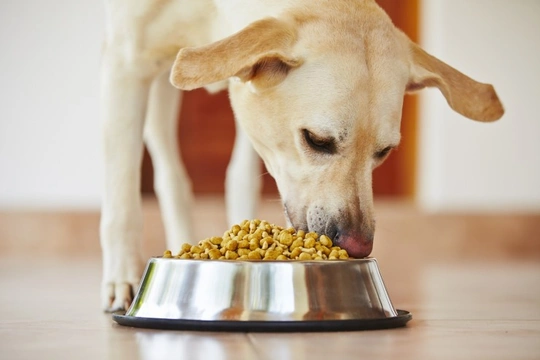
Does feeding dry dog food help to keep your dog's teeth in good condition?
It's important to keep an eye on the condition of your dog's teeth, especially as they get older. It's also essential to teach puppies that having their teeth cleaned is not a bad experience but one that ends with a tasty, albeit healthy reward. If a dog lets you clean their teeth on a regular basis, you'll find they are far less likely to develop any dental issues or diseases. The question that many dog owners ask is whether or not feeding dry dog food is a good way of keeping their pet's teeth in good condition. Read on to find out what the experts say.
Every dog is unique
It would be fair to say that most dogs have different nutritional needs and that many factors need to be taken into consideration when calculating how much to feed them, how often a dog needs feeding, and the type of food they should be fed to meet these needs. A "one diet fits all dogs" does not exist, and according to many canine nutritionists and vets, the same rule applies to whether dogs benefit from being fed dry dog food so their teeth stay in better condition.
Vets often recommend that obese dogs be fed a moist diet, and all too often one of the reasons they have put on so much weight is because they have always been fed dry dog food on a constant basis. The fact that these dogs only had crunchier or dry food in their bowls did not prevent them from suffering from dental disorders.
Less plaque build-up or not?
It stands to reason that feeding a dry or crunchy diet to your dog would mean there would be far less buildup of plaque on their teeth. However, studies have established that the fact a dog chews down on dry dog food does not necessarily mean less plaque forms on their teeth, with some kibble not helping to keep a dog's teeth in good condition at all.
With this said, some of the best dry dog food produced by specific pet food manufacturers is put through rigorous tests in order to find out if feeding it to dogs does, in fact, help keep their teeth in better condition. This is one of the reasons why it's important to buy the highest-quality dog food if possible and to always read the manufacturer's labels and recommendations.
Dogs chew their food differently
If you share your home with a dog that gulps down their food no matter how hard you try to prevent them from doing so, the chances are that any dry dog food they eat does not get chewed as it should at all and instead it's swallowed whole, which could cause all sorts of digestive issues, not to mention choking! If your dog does not "chew" the dry food you give them, then feeding them crunchier food will not be any help in preventing dental problems from developing, and tartar will continue to build up around their teeth and gums.
Oral health can have a direct impact on a dog's life span
It's been established that the condition of a dog's teeth can seriously impact the length of their lives and that dogs with dental issues have shorter life spans. For this reason, many pet parents try their best to feed the right sort of diet to their pets and make sure their teeth are cleaned on a regular basis. Pet food companies carry out a lot of research to establish the best formulas for keeping a dog's teeth in good condition, and the same can be said for cats.
The jury is still out
If the truth be known, both canine nutritionists and vets do not know if feeding dry dog food means that their teeth would be kept in better condition and that they would not suffer any sort of dental issue during the course of their lives because, as yet, there is no proof that feeding crunchier food will reduce any plaque or tartar buildup.
Lastly
Many dog owners feed their pets a dry food diet because they want to keep their teeth in as good a condition as possible. However, studies have established that feeding dry or crunchier food does not necessarily mean a dog is less likely to develop some sort of dental issue or disease. It is far better to teach a puppy to have their teeth cleaned on a regular basis as a way of reducing dental problems and to feed a dog a good-quality, nutritious diet to suit their age.



